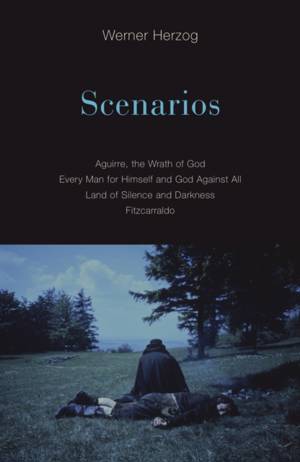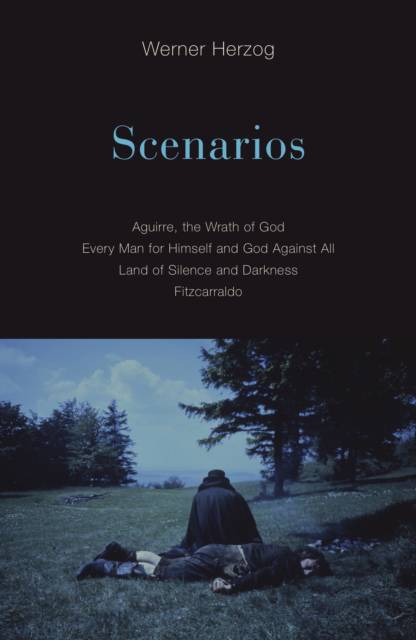
- Afhalen na 1 uur in een winkel met voorraad
- Gratis thuislevering in België vanaf € 30
- Ruim aanbod met 7 miljoen producten
- Afhalen na 1 uur in een winkel met voorraad
- Gratis thuislevering in België vanaf € 30
- Ruim aanbod met 7 miljoen producten
Scenarios
Aguirre, the Wrath of God; Every Man for Himself and God Against All; Land of Silence and Darkness; Fitzcarraldo
Werner HerzogOmschrijving
I do not follow ideas, I stumble into stories or into people; and I know that this is so big, I have to make a film. Very often, films come like uninvited guests, like burglars in the middle of the night. They are in your kitchen; something is stirring, you wake up at 3 a.m. and all of a sudden they come wildly swinging at you.
When I write a screenplay, I write it as if I have the whole film in front of my eyes. Then it is very easy for me, and I can write very, very fast. It is almost like copying. But of course sometimes I push myself; I read myself into a frenzy of poetry, reading Chinese poets of the eighth and ninth century, reading old Icelandic poetry, reading some of the finest German poets like Hölderlin. All of this has absolutely nothing to do with the idea of my film, but I work myself up into this kind of frenzy of high-caliber language and concepts and beauty.
And then sometimes I push myself by playing music, for example, a piano concerto by Beethoven, and I play it and write furiously. But none of this is an answer to the question of how you focus on a single idea for a film. And then, during shooting, you have to depart from it sometimes, while keeping it alive in its essence.
--Werner Herzog, on filmmaking
Werner Herzog doesn't write traditional screenplays. He writes fever dreams brimming with madness, greed, humor, and dark isolation that can shift dramatically during production--and have materialized into extraordinary masterpieces unlike anything in film today. Harnessing his vision and transcendent reality, these four pieces of long-form prose earmark a renowned filmmaker at the dawn of his career.
Specificaties
Betrokkenen
- Auteur(s):
- Vertaler(s):
- Uitgeverij:
Inhoud
- Aantal bladzijden:
- 368
- Taal:
- Engels
Eigenschappen
- Productcode (EAN):
- 9781517903909
- Verschijningsdatum:
- 1/10/2017
- Uitvoering:
- Paperback
- Formaat:
- Trade paperback (VS)
- Afmetingen:
- 137 mm x 208 mm
- Gewicht:
- 294 g

Alleen bij Standaard Boekhandel
Beoordelingen
We publiceren alleen reviews die voldoen aan de voorwaarden voor reviews. Bekijk onze voorwaarden voor reviews.











